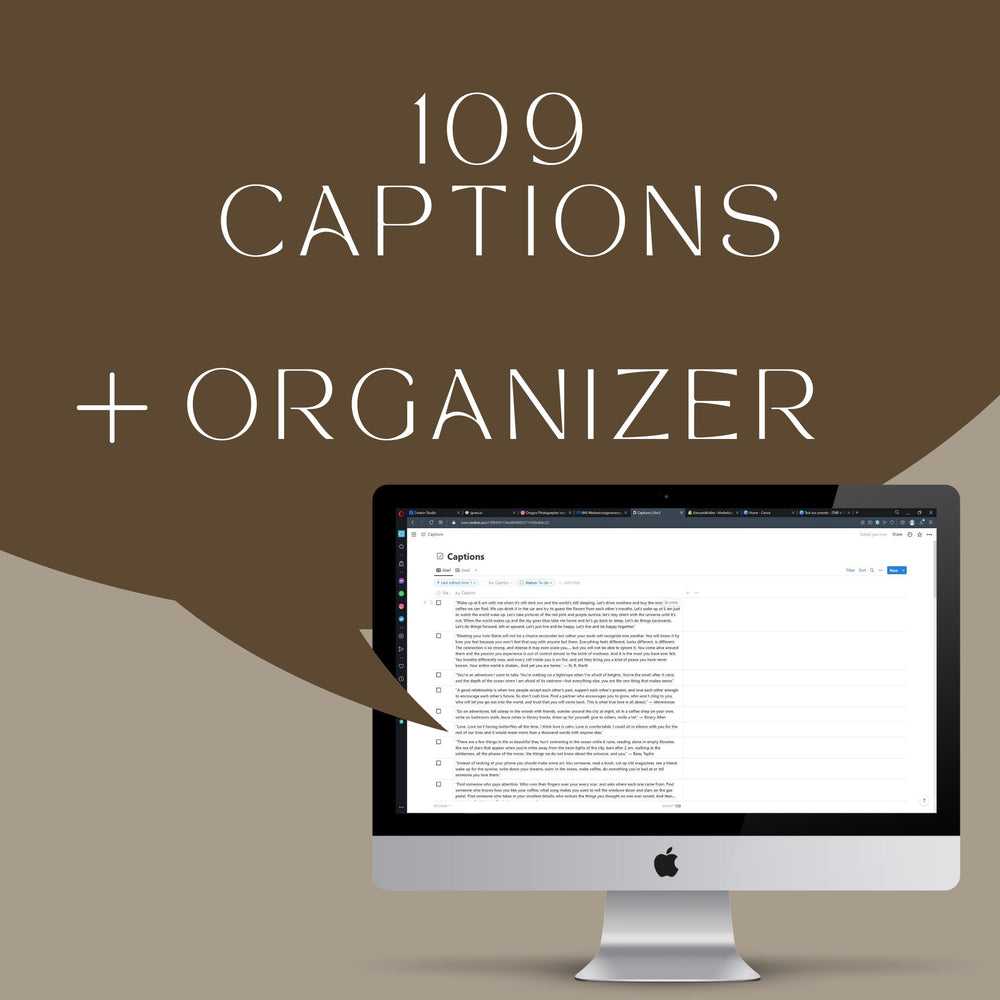Work life balance as a wedding photographer

As a wedding photographer, finding a balance between work and personal life can be a significant challenge. The demanding nature of the profession, with long hours, irregular schedules, and client expectations, often leads to a neglect of personal well-being. However, achieving work-life balance is crucial for both professional success and personal happiness. In this article, we will explore the importance of work-life balance for wedding photographers and provide practical strategies for maintaining it.
Understanding Work-Life Balance
Work-life balance refers to the equilibrium between professional commitments and personal life. It is about allocating time and energy to work, family, relationships, and personal interests, ensuring a harmonious integration of all aspects of life. For wedding photographers, this means finding a way to excel in their craft while also nurturing their personal well-being.
Benefits of Achieving Work-Life Balance
Attaining work-life balance offers numerous benefits. Firstly, it helps reduce stress and burnout, allowing wedding photographers to maintain their creativity and passion for their work. It also improves overall mental health, fostering a sense of fulfillment and satisfaction. Additionally, a balanced lifestyle enhances relationships with loved ones and promotes physical well-being.
Challenges Faced by Wedding Photographers
Wedding photographers face unique challenges in their pursuit of work-life balance. The demanding nature of the job, with long hours and intense work periods, can strain personal relationships and result in social isolation. Additionally, the pressure to deliver exceptional results within strict timelines can lead to work-related stress and exhaustion.
Setting Boundaries
One effective strategy for maintaining work-life balance is to establish clear boundaries between work and personal life. Wedding photographers can define specific working hours and communicate them to clients and colleagues. By setting expectations and sticking to these boundaries, they can ensure dedicated time for personal activities and relaxation.
Managing Time Effectively
Time management is crucial for achieving work-life balance. Wedding photographers should prioritize tasks and allocate time efficiently. Breaking down larger projects into smaller, manageable tasks helps prevent overwhelm. Utilizing digital calendars and scheduling tools can also aid in organizing and optimizing daily workflow.
Delegating Tasks
Wedding photographers often handle multiple responsibilities, from capturing images to post-processing and client communication. Delegating certain tasks, such as administrative work or editing, can lighten the workload and free up time for personal activities. Outsourcing specific tasks to trusted professionals can enhance efficiency and reduce stress.
Taking Breaks and Vacations
Regular breaks and vacations are essential for rejuvenation and avoiding burnout. Wedding photographers should incorporate short breaks during long workdays to recharge and maintain focus. Planning vacations in advance and communicating them to clients allows for uninterrupted time off. Taking time away from work promotes better overall well-being and helps maintain passion for photography.
Building a Strong Network
Creating a supportive network is vital for wedding photographers. Connecting with fellow professionals in the industry provides opportunities for collaboration, knowledge sharing, and emotional support. Attending conferences, workshops, and networking events can foster relationships and help combat the isolation often experienced in the field.
Seeking Help and Support
Wedding photographers should not hesitate to seek help when needed. Whether it's assistance with a challenging shoot, editing workload, or personal matters, reaching out to friends, family, or professional support networks can alleviate stress and provide valuable guidance. Utilizing online communities and forums can also offer a sense of belonging and camaraderie.
Communicating with Clients
Effective communication with clients is essential for maintaining work-life balance. Setting clear expectations from the beginning, establishing boundaries, and maintaining open lines of communication help manage client demands and avoid last-minute requests. By fostering transparent and respectful communication, wedding photographers can create a harmonious working relationship that respects their personal life.
Prioritizing Tasks
Prioritization is crucial to ensure efficient use of time and resources. Wedding photographers should identify and focus on high-priority tasks that contribute to their long-term goals. By organizing their to-do lists and concentrating on the most important assignments, they can reduce stress and avoid feeling overwhelmed by multiple tasks.
Streamlining Workflow
Streamlining workflow processes can significantly improve productivity. Utilizing technology and tools specifically designed for wedding photographers, such as project management software, image editing applications, and client communication platforms, can streamline tasks, reduce manual work, and improve overall efficiency.
Taking Care of Physical Health
Maintaining physical health is essential for work-life balance. Wedding photographers should prioritize regular exercise, nutritious meals, and sufficient sleep. Engaging in physical activities not only boosts energy levels but also enhances mental clarity and overall well-being. Small changes, like incorporating stretching breaks during shoots, can make a significant difference.
Nurturing Mental Well-being
Paying attention to mental well-being is vital for wedding photographers. Engaging in activities that promote relaxation, such as meditation or mindfulness exercises, can help manage stress and anxiety. Taking breaks to pursue hobbies, spend time with loved ones, or simply enjoy solitude fosters emotional well-being and rejuvenation.
Pursuing Hobbies and Interests
Having hobbies and interests outside of work is essential for maintaining a healthy work-life balance. Wedding photographers should make time for activities they enjoy, whether it's reading, painting, hiking, or any other passion. Engaging in hobbies provides an outlet for creativity, relaxation, and personal growth, contributing to overall life satisfaction.
Conclusion
Achieving work-life balance as a wedding photographer is crucial for professional success and personal well-being. By setting boundaries, managing time effectively, and nurturing physical and mental health, photographers can strike a harmonious equilibrium between their work commitments and personal life. It requires conscious effort, but the rewards include reduced stress, improved relationships, and enhanced overall satisfaction. Remember, prioritizing self-care and maintaining a healthy work-life balance are not only beneficial for wedding photographers but also for the quality of their work.
FAQs
How can I achieve work-life balance as a wedding photographer?
Achieving work-life balance as a wedding photographer requires setting boundaries, managing time effectively, and prioritizing self-care. It involves clear communication with clients, delegating tasks when necessary, and making time for personal activities and relaxation.
Is it possible to maintain work-life balance without compromising the quality of work?
Yes, it is possible to maintain work-life balance without compromising the quality of work. By implementing effective time management strategies, prioritizing tasks, and utilizing technology and tools, wedding photographers can optimize their workflow and deliver exceptional results while also taking care of their personal well-being.
How can I effectively communicate with clients while maintaining work-life balance?
Effective communication with clients is key to maintaining work-life balance. Setting clear expectations from the beginning, establishing boundaries, and maintaining open lines of communication help manage client demands. Regularly updating clients on progress and ensuring transparency can help create a harmonious working relationship.
What are some common challenges faced by wedding photographers in maintaining work-life balance?
Wedding photographers often face challenges such as long working hours, irregular schedules, and the pressure to meet client expectations. Additionally, the demanding nature of the job can strain personal relationships and lead to social isolation. Finding ways to balance these challenges while nurturing personal well-being is essential.
Are there any specific tools or software that can help in managing time and workflow as a wedding photographer?
Yes, there are several tools and software available that can assist wedding photographers in managing time and workflow. Project management software, image editing applications, and client communication platforms are just a few examples. Researching and utilizing the right tools can streamline tasks, reduce manual work, and improve overall efficiency.









![[NEW] Clean Collection Presets Mobile - bitesandtickles](http://bitesandtickles-shop.com/cdn/shop/products/new-clean-collection-presets-mobile-256234.jpg?v=1685723321&width=1000)












Leave a comment